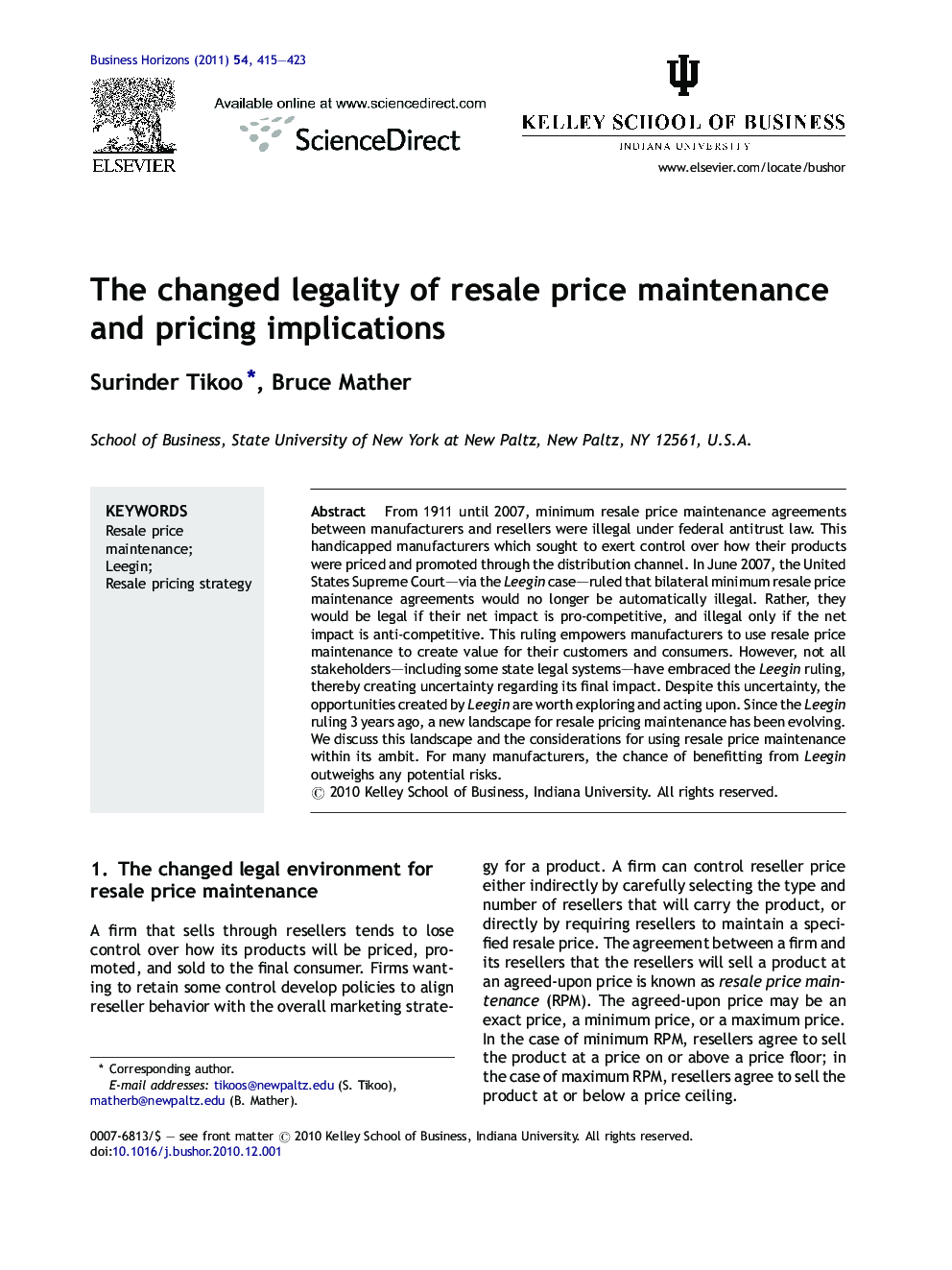| Article ID | Journal | Published Year | Pages | File Type |
|---|---|---|---|---|
| 1014099 | Business Horizons | 2011 | 9 Pages |
From 1911 until 2007, minimum resale price maintenance agreements between manufacturers and resellers were illegal under federal antitrust law. This handicapped manufacturers which sought to exert control over how their products were priced and promoted through the distribution channel. In June 2007, the United States Supreme Court—via the Leegin case—ruled that bilateral minimum resale price maintenance agreements would no longer be automatically illegal. Rather, they would be legal if their net impact is pro-competitive, and illegal only if the net impact is anti-competitive. This ruling empowers manufacturers to use resale price maintenance to create value for their customers and consumers. However, not all stakeholders—including some state legal systems—have embraced the Leegin ruling, thereby creating uncertainty regarding its final impact. Despite this uncertainty, the opportunities created by Leegin are worth exploring and acting upon. Since the Leegin ruling 3 years ago, a new landscape for resale pricing maintenance has been evolving. We discuss this landscape and the considerations for using resale price maintenance within its ambit. For many manufacturers, the chance of benefitting from Leegin outweighs any potential risks.
